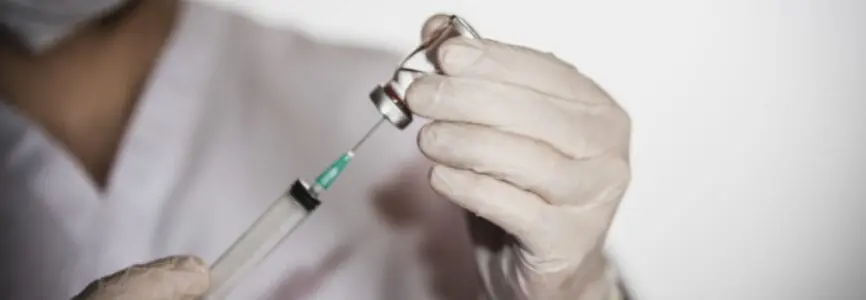Bioethics Forum Essay
Fair Compensation for Rare Vaccine Harms
As multiple Covid vaccine candidates enter clinical trials and hopefully move closer to approval, one important unanswered question is how to compensate the rare cases of serious vaccine harm if any arise (whether during a trial, or after distribution). While vaccines are held to a high standard of safety, nothing is 100% safe. Even for routine vaccines, serious harms are not zero, though they are extremely rare. Since there is a possibility of harm from Covid-19 vaccines and since many Americans worry that they might be harmed – and may not take the vaccine because of that — there has to be a policy in place just in case something does go wrong for someone.
The rare cases of vaccines harms deserve fast, generous compensation, and the court system is not, for a number of reasons, the right place to get that compensation. First, our court system acts on a fault basis. To be compensated for harms caused by a product, a plaintiff needs to show not only that the product caused harm, but that the defendant failed in some way that justified laying the blame on the company: either the product was defective, or the defendant was negligent, or worse, the defendant acted fraudulently. For vaccines’ harms, that’s too high a bar.
Vaccines do two wonderful things: protect the person vaccinated and create a public good via community immunity. When enough people in a community are vaccinated against a virus, it cannot easily jump from one person to the next, getting a deadly hold in that community. Because vaccinating serves not just the individual but the public, the public owes the rare cases of harm prompt compensation – regardless of fault. It’s unfair that the benefits of vaccines reach the entire public, but the rare harms are borne by specific individuals. So, Americans should not leave the issue of compensation to lawyers and juries.
Not only are individual lawsuits against doctors or companies slow and expensive, having to go to court to fight it out may deter manufacturers from making vaccines. Then there will not be enough (or any) vaccines to protect the community.
Vaccines are often costly to research and produce, and are not as profitable as drugs used every day. The makers of some Covid-19 vaccines, given support by government money, may not suffer from this, but others will, and even government-funded vaccines may be lost if substantial litigation were an injured person’s only recourse. The litigation does not need to be well founded. Anti-vaccine activists can and have litigated frivolous claims against manufacturers just to undermine vaccines. They are already doing their best to undermine Covid-19 vaccines through misinformation and scare tactics.
What can be done?
Well, there are at least two ways to limit the liability of vaccine manufacturers while providing no-fault compensation to claimants. One way is a declaration under the Public Readiness and Emergency Preparedness Act that limits manufacturers’ liability. The Secretary of Health and Human Services made such a declaration in relation to Covid-19 medications and vaccines last February limiting liability until 2024.
But that is not the best option. While the act creates a compensation program, that program has a high bar of proof, requiring claimants to show that a Covid vaccine caused their harm with “compelling, reliable, valid, medical and scientific evidence.” Such evidence takes time to produce, and for rare events, may be really hard to come by. People who may have been harmed by a Covid vaccine deserve a generous, user-friendly compensation scheme.
A better option is the existing National Childhood Vaccine Injury Compensation Program, which allows a group of expert administrative adjudicators to compensate petitioners without having to meet a difficult standard of proof. Petitioners in the program can be compensated if they have a plausible theory supported by an expert (a theory that has scientific evidence against it is not “plausible”). This is a better approach, allowing for generous, speedy compensation of people who may have been harmed by vaccines. To get there we need to change the existing law by adding Covid-19 vaccines to the program.
People who vaccinate protect themselves and others. They deserve, if the unlikely happens and they’re harmed, to be compensated by the community. The current compensation program is a reasonable way to do so. We need to act now so that no one delays or avoids a Covid vaccine for fear that they will have to face the costs of a bad result alone.
Arthur Caplan, PhD, is the Drs. William F. and Virginia Connolly Mitty Professor of Bioethics and the founding director of the Division of Medical Ethics at the NYU Grossman School of Medicine. He is a Hastings Center fellow and a member of The Hastings Center’s advisory council, Twitter: @ArthurCaplan. Dorit Reiss is the James Edgar Hervey Professor of Law at the University of California, Hastings College of the Law, Twitter: @doritmi.














This is an excellent, concise statement of the legal issues. Thank you. Questions of the details may still require court involvement: for instance, what is “generous” and should an award under the provisions of the Act be an injured person’s sole avenue to relief?